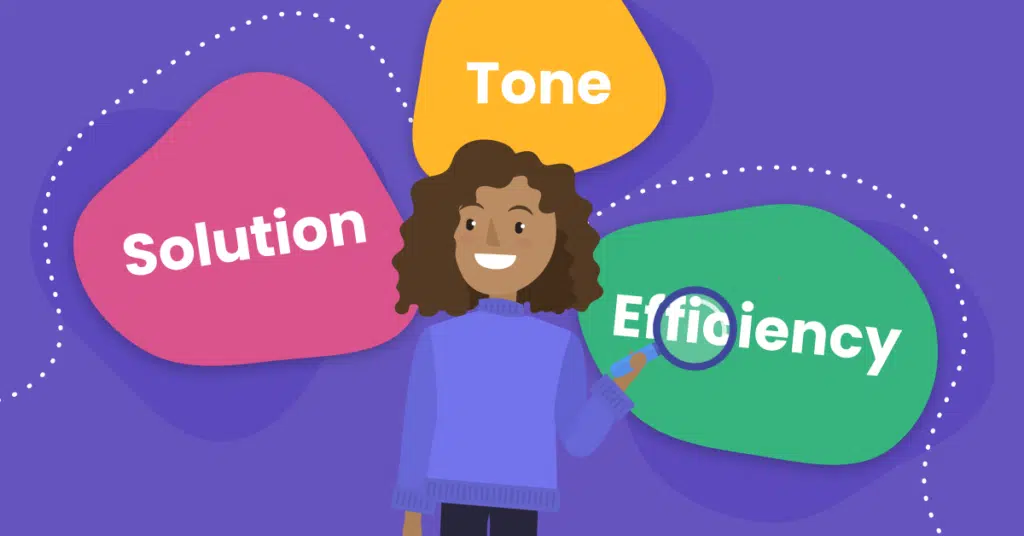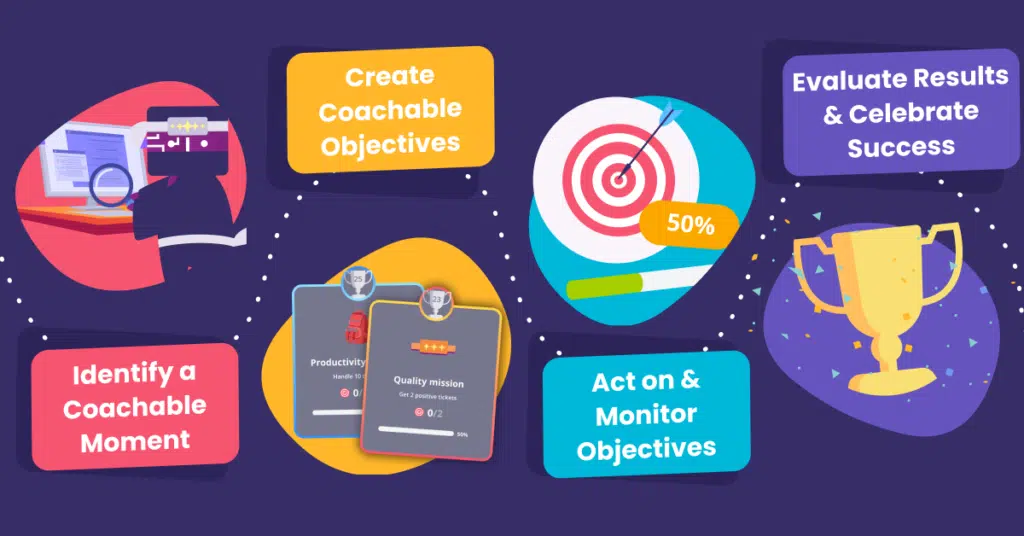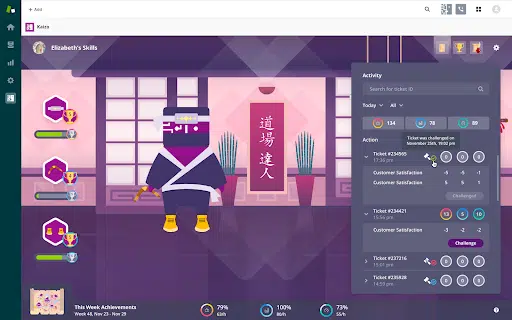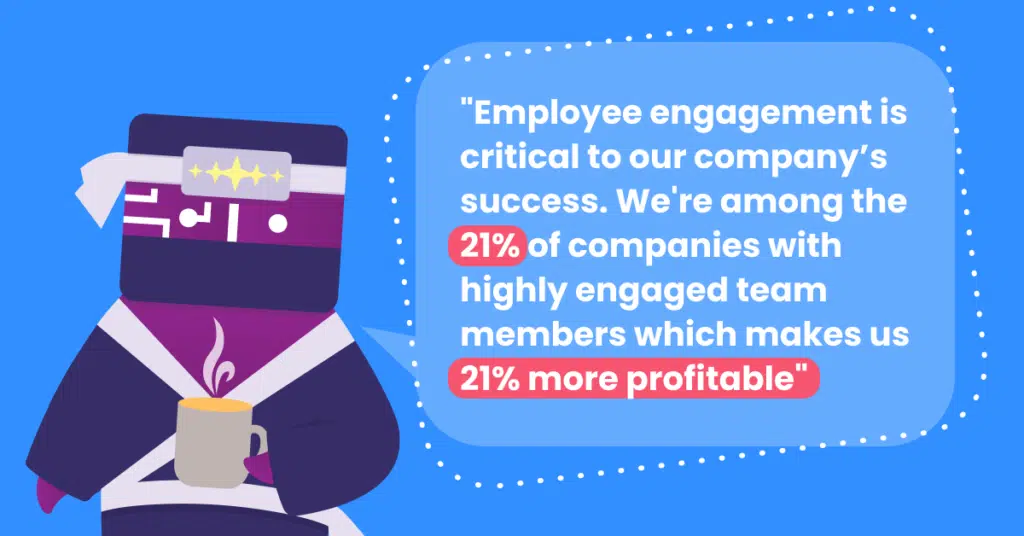As someone who leads customer support, it’s probably no surprise to you that customer satisfaction can make or break your brand. That’s why quality assurance in a call center is so important.
In Microsoft’s Global State of Consumer Service Report, 90% of people said that customer service is a deciding factor in choosing and staying loyal to a brand. With so much riding on excellent customer service, improving quality assurance in a call center is crucial.
According to that same report, 58% of consumers say they have stopped transacting with a business after a poor customer service experience. The report also says that 55% of customers have higher expectations for customer support than they had one year ago.
When each customer service interaction has such high stakes you’ll want to regularly improve quality assurance in your call center. We’ve got you covered. Dive in to see our 17 best practices for boosting QA in a call center, applicable in 2022 and beyond.
What is call center quality assurance?
Call center quality assurance is the continuous process of observing and analyzing your agents’ customer interactions. Leaders rate these interactions against a set of quality criteria to ensure their teams improve and meet each customer’s expectations.

A good quality assurance process should help prevent mistakes and continually improve quality standards. The right process can help managers make informed decisions about training, recruitment, staffing, and other internal processes.
17 ways to improve quality assurance in a call center
Improving quality assurance in a call center is an ongoing task that requires strategy, monitoring, and commitment from QA/team leads and support agents. Tracking results is just one piece of the puzzle. Involving your team is crucial to the success of your QA strategy.
1. Have a clear QA strategy
To measure the quality of your agents’ performance it’s important to set clear expectations.
Define quality for your team and figure out how you’ll measure and track it. Decide how often you’ll perform QA, provide coaching, and make a plan for how you’ll help agents improve.
For example, you can define specific call center metrics that you want to measure and how often you will review them.
A few commonly used call center metrics include Customer Satisfaction Score (CSAT), Negative Response Rate (NRR), and Repeat Contact Rate (RCR). Once you’ve defined your metrics, reviewing performance on a weekly basis can help you spot problem areas faster so you can make improvements right away.
2. Assign quality assurance ownership to someone (if it’s not you)
Once you have your strategy in place, someone needs to have ownership of the QA process for maximum success. If roles are unclear in your organization, management should sit down and decide which person, or team of people, will take the lead in the QA process. When someone is specifically in charge of managing QA, the process will go more smoothly.
3. Monitor all customer support channels
If your support is omnichannel you need to have QA on email, live chat, SMS, phone, and any other channels your team uses.
When monitoring phone calls you should have a healthy mixture of QA on interactions where the agents know you’re listening and when they don’t know. This allows you to see if the quality of service is consistent under all circumstances or if there’s a disparity. If the quality is vastly different, the agent may need coaching and retraining. With this scenario, you will easily identify coachable moments and leverage them accordingly.
4. Define behaviors that are important to your business
When you train your employees on behaviors that are important to the business, make sure to clearly define them. For instance, if you want your agents to be friendly to customers, tell them concretely what that means. Give them examples of specific things they can say and do so that a high standard of quality is met with each interaction.
But above all, your agents need to be good at showing empathy for their customers. Empathy is the driving force behind customer loyalty. No matter what situation an agent is dealing with, be it a satisfied or a dissatisfied customer, they need to strive to understand why customers feel the way they do and, most importantly, validate those feelings.
Empathy is one of the things you can train by giving your agents guidelines to follow, types of sentences that might work well in certain situations (but that doesn’t mean they need to copy them — you don’t want to sound robotic here).
5. Provide feedback and coaching
Have you ever been called into the principal’s office in school? It’s not a good feeling. But when you make feedback and coaching part of your daily or weekly operations, rather than sporadic or reactive, your employees won’t feel that sense of dread every time you give feedback.

By developing a coaching culture, keeping coaching positive and consistent your agents will use it as it’s intended — to improve and thrive in their jobs.
In short, this coaching is not so much a part of your management journey as a management style in general. By coaching your customer service teams and giving them a growth roadmap to follow, you can improve employee engagement, increase talent retention, and, eventually, level up your business outputs. And the best thing is that coaching can be an enjoyable and entertaining experience for everyone involved, especially if you bring gamification into the game.
For instance, with Kaizo, you can personalize that coaching experience for every agent and use metrics to provide actionable advice for each individual on your team. It is this combination of quantitative and qualitative feedback that will make it easy for you to visualize development plans and bring your agents towards better performance outcomes.

6. Track improvements
Everyone likes to know their work is valued and appreciated. To boost your agents’ morale and performance, follow-up after coaching sessions with positive feedback about their improvements. This shows your employees that you are equally invested in helping them improve.
7. Give low performing agents extra attention
Help out your team by giving low-performing agents some extra attention. By giving these agents extra feedback, training, and support you can help improve their morale and performance while boosting your overall QA scores.
8. Promote self-monitoring and encourage collaboration
Encourage your agents to monitor themselves by scheduling a few minutes after each shift where agents can discuss the results of their self-monitoring QA. This will allow them to review what went right and where they can improve while the day’s calls are fresh in their mind.
You can also encourage agents to practice calls with their co-workers. This will allow agents to problem-solve as a group and foster teamwork.
9. Let agents dispute evaluations
Sometimes bad reviews are outside of an agent’s control. It happens! Allow your agents to challenge bad customer service reviews that they believe to be out of their control.
Kaizo has an NRR challenge feature that allows agents to fairly challenge bad customer service reviews. Once the agent challenges the review, a team lead or QA lead can review it. If it is truly not something that could be fixed with improved employee performance, that review can be taken off the agent’s overall NRR.
This makes the agent feel truly heard by the company. It allows them to get an accurate picture of where their performance needs improvement.

10. Share real-time statistics with your team
When you share real-time stats with your team you have full transparency in the process. This shows your agents that everyone is being fairly evaluated and gives them ownership of their role. Employees with a sense of ownership are far more motivated to perform. In fact, employee engagement is linked to better company performance.

Seventy-one percent of executives say that employee engagement is critical to their company’s success. What’s more, 21% of companies with highly engaged team members are 21% more profitable.
That’s why Kaizo created a way for you to keep your agent’s performance data completely transparent and actionable with Agent Scorecard. This way, agents can stay on top of their quality with real-time metrics to quantify their performance.
11. Focus on positive and negative feedback
Imagine your boss only gave you feedback when you’d done something wrong. Talking to your boss would probably be an anxiety-inducing experience. That’s why it’s important to focus not only on corrective feedback for negative issues but also focus on positive feedback.
Focusing on the positives helps reinforce the things agents are doing correctly. It gives them a sense of pride in their work, and makes your team more receptive to constructive criticism.
When you’re giving corrective feedback in a call center, frame it in a way that is helpful and concrete. For example, if your agent forgets to use the approved company welcome greeting, you could frame the feedback as follows:
“I see in this conversation you started the call by saying “Hey, how’s it going today?” Let’s remember to use our standardized welcome greeting on every call. Here’s a copy of the approved greeting script as a reminder.”
12. Invest in quality assurance software
Don’t spend unnecessary hours doing QA with a spreadsheet when technology can streamline the process for you. Use a CRM-integrated QA software for a more effective and efficient workflow.

Next-gen software, like Kaizo, can streamline your customer experience and your QA process. This will improve customer satisfaction and ensure your team is more engaged and higher-performing.
The most efficient way to perform QA in a call center is by choosing the right software solution.
13. Hire well and train regularly
People are at the heart of your business, so it’s critical you choose the right people when you’re looking to grow your support team. You want managers who are great coaches and agents who are willing and motivated to develop their skills.
During one of our recent webinars, customer support leaders shared one unbreakable rule they follow — “Hire right”. Finding the right people to join your team is where it all starts, where you can see if someone is a people person and if they are actually interested in building a career in customer support.
Once you have the right team in place, it’s important to train them properly. Your agent training process should focus on behaviors that will yield the best customer experiences based on the quality criteria you have established.
Your training program will be most effective if you provide real-life examples of how to handle customer interactions and how not to handle them.
If you’re hiring the right people and training them regularly, but you’re still not hitting your QA goals, it’s time to assess how effective your training program is and potentially revamp it.
14. Involve agents in creating your QA checklist
Involving your agents in creating the QA checklist helps give them ownership of the QA process. It makes sense that the people performing the work would have the best insights on how to track the quality of their work. Creating a call center quality assurance list together prevents agents from feeling like they’re being micromanaged. At the same time, it fosters a positive, team-centered work environment.
15. Build monthly themes into your strategy
Use themes to help bring some fun into the workplace and focus your agents on a specific area that needs improvement. Get creative with the themes.
For example, you could have a “March Madness” theme to improve customer satisfaction ratings. You could have a friendly competition for improving customer satisfaction ratings by putting agents into brackets and having them advance as their ratings go up.
16. Save calls that follow call center best practices
Calls that follow best practices are invaluable learning tools. Giving agents this opportunity to hear real conversations that demonstrate and reinforce their training gives them one more tool for success.
17. Motivate your agents and give rewards
Build your agents up by giving positive feedback at any opportunity. Incentivize improvement with awards that might include public acknowledgment, a bonus, or a prize.
A good strategy to proactively guide and motivate agents to perform better is to figure out which quality criteria are most important and where your team needs improvement. Then award agents certain points or scores depending on how they perform. You can weigh the quality criteria you find most important with more points to proactively guide and motivate agents to perform better in critical areas.
Get the support you need to manage quality assurance in a call center
With the right tools, you can turn QA into a pleasant, positive experience for you and your agents. Kaizo’s QA solution can help streamline your quality assurance process and manage everything in one place. If you’re in the market for a performance management solution, check out more information on how to pick the perfect call center QA software.




